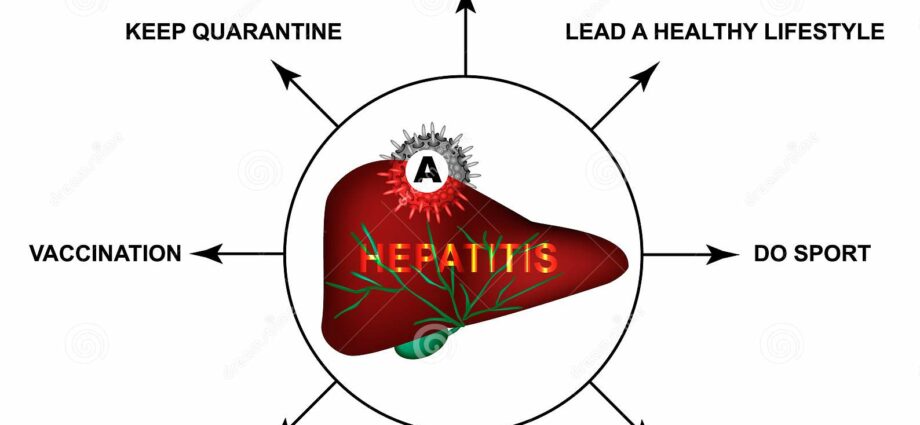Prevention of hepatitis A
Prevention mainly concerns groups at risk and is carried out at three levels: vaccine, immunoglobulin, very strict general hygiene rules.
Vaccin
Health Canada recommends pre-exposure vaccination in the following people
- Travelers or immigrants from endemic regions
- Family contacts or relatives of adopted children from countries where HA is endemic.
- Populations or communities at risk of HA outbreaks or in which HA is highly endemic (eg, some Aboriginal communities).
- People whose lifestyle puts them at risk of infection, including people who use illicit drugs (whether injecting or not) and men who have sex with men (MSM).
- People with chronic liver disease, including people with hepatitis C. These people are not necessarily at an increased risk of hepatitis A, but the disease could be more severe in their case.
- People with hemophilia A or B who are given plasma-derived clotting factors.
- Military personnel and aid workers who may be posted overseas, in areas of high HA prevalence.
- Zookeepers, veterinarians, and researchers come into contact with non-human primates.
- Workers involved in HAV research, or the production of HA vaccine, may be exposed to HAV.
- Anyone who wants to reduce their risk of HA.
There are several vaccines against HAV:
- Avaxim and Pediatric Avaxim
- Havrix 1440 et Havrix 720 junior
- Vaqta
And combinations of vaccines:
- Twinrix and Twinrix junior (combined vaccine against HAV and HBV)
- ViVaxim (combined vaccine against HAV and typhoid fever)
Remarks
- The vaccine has not been studied in pregnant women, but since it is a vaccine with inactivated virus, the risk to the fetus is only theoretical.3. The decision is taken on a case-by-case basis according to the assessment of the possible benefits and risks.
- There are possible side effects, but infrequent: local redness and pain, general effects that last a day or two (especially headache or fever).
- The vaccine does not act immediately, hence the interest of an injection of immunoglobin for urgent cases. See below.
Immunoglobulins
This method is used for people who may be exposed to the virus within four weeks of vaccination. In this case, we give an injection of immuglobulin at the same time as we vaccinate – but in a different part of the body. This method is sometimes recommended for people who have had close contact with infected people. There is no risk in the event of pregnancy.
Hygiene measures while traveling
Be careful what you drink. Which means : never drink tap water. Choose drinks in bottles that will be uncapped in front of you. Otherwise, sterilize tap water by boiling it for three to five minutes. To brush your teeth, also use uncontaminated water. Never add ice cubes to drinks, unless they have been prepared with mineral water from an encapsulated bottle. Carbonated drinks and beers produced locally in endemic areas should also be avoided.
In case of accidental injury, never clean the wound with tap water. It should be done only with a disinfectant.
Eliminate from your diet all raw foods, even washed, since the washing water itself may be contaminated. All the more so since, in regions at risk, these foods can also be infected by other pathogenic germs. It is therefore necessary to avoid the consumption of uncooked fruits or vegetables (except those with a peel), and green salads; raw meat and fish; and seafood and other crustaceans which are usually eaten raw.
The above dietary recommendations also apply to those who frequent the best hotels or well-established tourist routes.
Always use condoms during sex if you are traveling to areas at risk. And it is better to bring condoms with you because of the poor quality of those found in many areas at risk.
Hygiene measures to be observed at all times or in the event of an infected person in the household:
If you live with an infected person or if you are infected yourself, it is important to wash your hands well after defecation or before eating to avoid any possible contagion in the household, in addition to being vaccinated.










